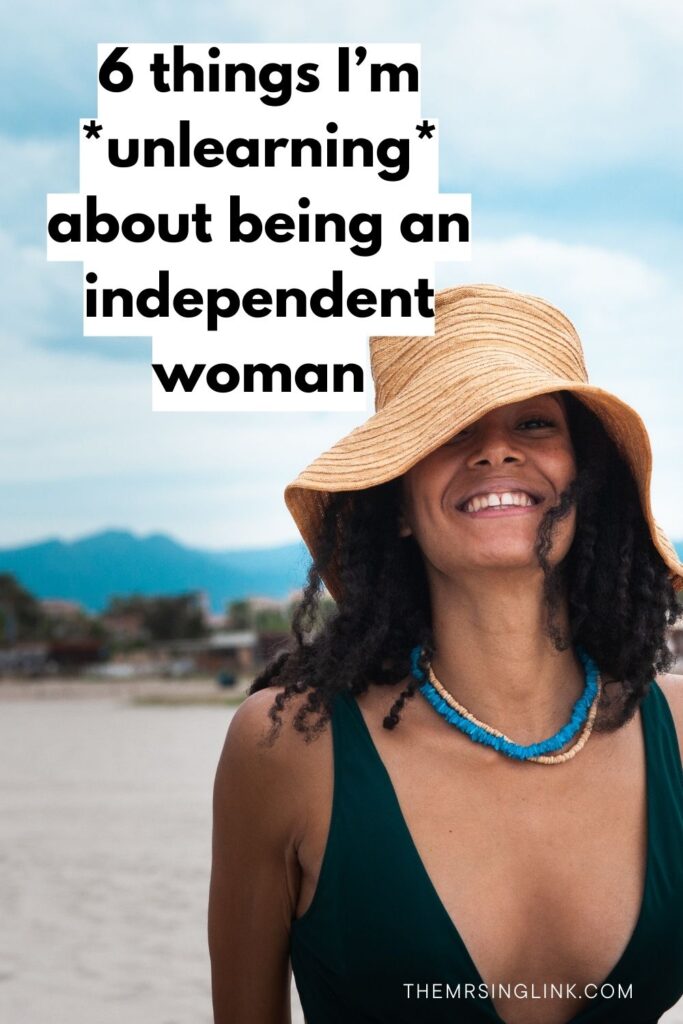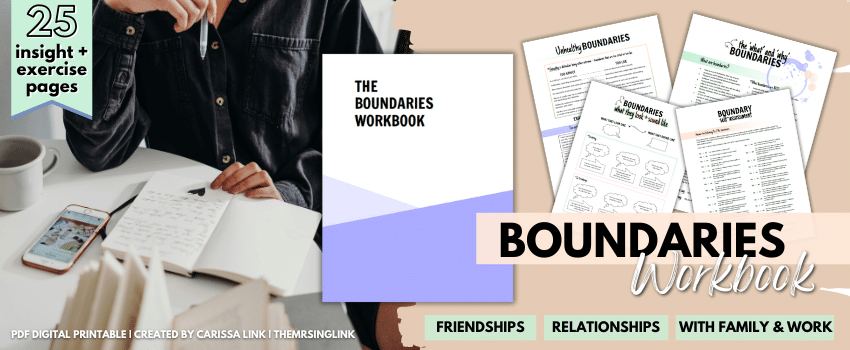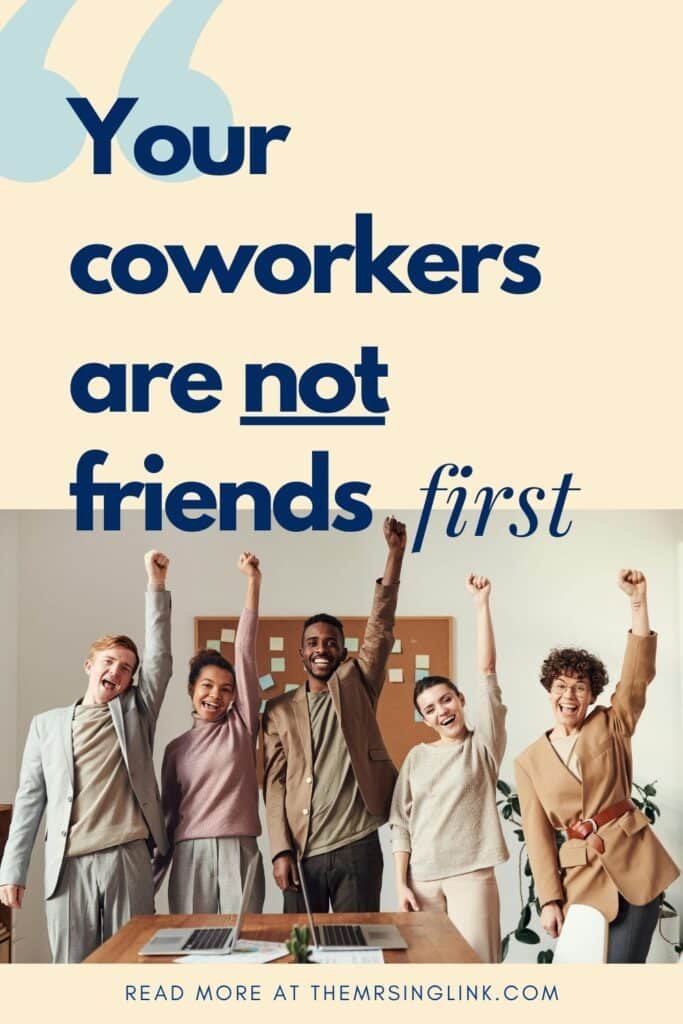What does getting your life together or having your life in order mean to you?
To all my girlies, besties, ladies out there – if you’re on the “getting my life together” train, I want you to remember something! This looks different for everybody, and a lot of it depends on whether you’re following what’s mainstream.
In a world full of influencers, getting your life together tends to focus heavily on the material, superficial or achievement side; like the big girl career or boss b*tch life, making a ton of money or having all the [“nice”] things, and immaculate fitness or bod goals.
While there’s nothing wrong there, those aren’t the first and only things to consider when getting your life together.
Hell, I once thought getting my life together meant ALWAYS having a plan, having a *realistic* plan (that *society* approved of), sticking ONLY to the plan, executing that plan at whatever expense necessary, and when one failed ALWAYS having a backup.
THIS, this, brought me down a very short-sighted and bitter road. And let me tell you right now…that mindset, at now 30-something, has lead me to burn out and “life fatigue“. I’ll unpack more on this later.
Ladies, having goals are great, don’t get me wrong. But many of us are stuck on the hamster wheel, always thinking, wanting and doing [more], and basing our worth and value (in life and on life’s success) on constant productivity, performance, consumerism, and achievement!
Here’s what I’m trying to tell you: getting your life together can ALSO mean..
![Girlies, getting your life together can ALSO mean.. | Ladies, having goals are great, don't get me wrong. But many of us are stuck on the hamster wheel, always thinking, wanting and doing [more], and basing our worth and value (in life and on life's success) on constant productivity, performance, consumerism, and achievement!](https://themrsinglink.com/wp-content/uploads/2023/11/getting-your-life-together-can-also-mean-pin-1-683x1024.jpg)
Buying and consuming less
I think more importantly *wanting* less. When I said I experienced life fatigue, the first thing I became sick of was the constant state of needing or wanting more. I thought more would make me happy – which, it does, but only temporarily. It’s a hard dopamine hit that eventually crashes, anyway, until you repeat this cycle and then become dependent on it.
Always wanting something new or more, always needing the latest upgrade or updated thing – whatever it was at the time: home decor, money, a car, the latest and greatest makeup, a change of scenery (traveling or moving), or new clothes just to name a few examples. Yes, these are all material things, and some things are absolute needs, but I was taught that getting my life together meant indulgence (or *reward* for hard work) while bypassing the goal of contentment.
Isn’t that the goal of the obligatory part of life? We’re required to work in order to “live”, so that we are content. But many of us subscribe to the “live to work” ideology while sacrificing actually living so that we can justify seeking beyond contentment. Many work to their graves so they can have the nicest things, keep up with the Jone’s, and to feel a sense of power, pride or accomplishment.
Our world is driven by consumerism, much like our economy. Everyone is suckered into buying something every second of every day, let alone being convinced why they need it – to the point where what you have is simply never enough. Getting your life together doesn’t mean constantly filling your life with more [stuff], or clutter. Oftentimes it’s cleansing your life of what you don’t actually need and consuming less that ends up being filled and replaced with joy, instead.
Joy is contentment whereas happiness is indulgence.

Living within your financial means
Rather than always having your sights set on more money, which can usually mean working two+ jobs, jumping from job to job in hopes to increase pay, working longer hours, expending more of your time, and working 2for1 (working the job of two people for a single salary), etc. etc.
Listen, it’s not about the job promotion you deserve, the fact you’re a natural overachiever or simply making enough money to pay your bills. If your aim is always more money to suit your financial and material expectations at the expense of your peace and mental well-being, for example, are you actually getting your life together or are you possibly sending it into overdrive?
When I finally understood what living within my means actually meant, it humbles you, and you begin to truly appreciate what you have without having to sacrifice an arm and a leg in order to have [consume] or do [succeed, perform] more, which is what the world wants of you. The world wants you to bend over backwards for more, while blaming everyone else for what you don’t have and making you bitter for not having it (not affording it).
So what does living within your financial means mean? It’s living within what you can afford, comfortably, while focusing on what’s important. It also means being okay knowing you won’t have it all or afford it all (at least, not instantaneous or without saving or budgeting). This can mean having to set certain financial and material boundaries, yes, but honestly there’s something much greater you gain from doing so.

What can these financial boundaries (or living within your means) look like? I’ll keep it simple and up to date with the times and appropriate age group.
- Declining certain things that don’t fit your budget, such as getting the new Iphone every year or doing floor seats, the unlimited drink package, and back stage passes at the Taylor Swift concert (or whatever the most expensive options are these days, LOL). *The point being you can still have a nice phone and go to the Swift concert, just maybe not to the extent you’re hoping. Some people are “it’s all or nothing“, and this is no way to live.
- Saying “No” to certain things that aren’t worth compromising elsewhere, such as when friends invite you to do a girl’s weekend at a resort on the beach which, in order to go, would force you to compromise making your rent on time. To combat this, maybe you live off soup for two weeks. Now ask yourself: is this positively contributing to you getting your life together? *Again, this isn’t about never being able to go, but living within your means means spending appropriately without having to deplete one aspect of your life and play catch up later.
Prioritizing your aspirations that aren’t monetary
Quoting Aristotle, “Educating the mind without educating the heart is no education at all,” I’d like to think he’s implying that the meaning of life is not solely mental intellect or education (knowledge) – specifically what we can do [gain, $$$] – but that the heart is the root of our human experience, and what gives life meaning.
With that, I used to look back and think how foolish I was for prioritizing my aspiration for partnership, specifically marriage and being a wife. I don’t need to go into details on this, but I set myself and my life up somewhat around this aspiration, not the other way around. Does this mean I looked at and treated life differently? Yes, because I didn’t view life as one big bubble of monetary possibility. If I had the choice between a nice career with a hefty paycheck OR finding Love – I choose Love, hands down.
I always hated money, but it wasn’t until I reached my thirties how much I truly hated what money does to people by the way it changes their view and perception of life when there’s so. much. more. to it. Many of our hearts have evolved around money instead of the things whose value isn’t measured by the dollar.
And even if the whole marriage thing isn’t your cup of tea right now, or ever – that’s cool – there are certainly other aspirations I’m talking about here. What I mean by not mentary is that these things aren’t necessarily things that promise monetary value or benefit you montearily. That’s not saying money won’t be involved, but that money is no end-goal. For instance, your aspiration may be to have a pet and be a pet parent at some point – to love, care and provide for something beyond your self. Maybe you enjoy a slew of certain hobbies, like art, knitting or crochetting, photography or gardening.
I’ve learned that the very things that give me the most sense of purpose in life have absolutely nothing to do with money, and that bring me zero monetary gain. Let’s get back to prioritizing those things instead of B-lining for the “time is money” mentality.

Focusing on your health
Don’t worry I’m not diving into specifics on diet and exercise, though they are important, yes. I’m mostly focusing on mental, emotional and spiritual health. Many a times I felt that getting my life together meant at the expense of my health, particularly in those areas. Which, when you think of it, if those areas are compromised, eventually your physical health will be impacted, too.
Focusing on your mental health would be to eliminate factors that are tempting or forcing you to choose between or sacrifice your overall health and well-being. Mental health, in this sense, would be the clarity to make good, logical decisions (for yourself). Some decisions you make are considered *good*, to you, but may not be beneficial to your mental health. Remember that.
Focusing on your emotional health is to learn how to manage, regulate and express feelings and emotions. This includes decision-making based on feelings and emotions, emotional responses to certain triggers as well as growth in emotional maturity. This wasn’t something I learned or was openly taught, and only now realize how vital emotional health truly is, especially pertaining to personal relationships through life. At the end of the day, this is all your responsibility – playing a huge part in getting your life together, which is actually ongoing. There really is no *end-point* in personal growth and healing.
Focusing on your spiritual health, in very blanketed terms, is your overall peace, hope and contentment with life and especially through hardship. This can be more or less religious or spiritual, where you look to and find comfort in a superior, or something greater than yourself. Your spiritual health can also influence your decision-making based on personal morals and values through life as well as to better connect with yourself on a deeper level of conviction, acceptance and understanding. For example, drawing closer to Jesus Christ has helped me overcome a slew of previous trauma (that I didn’t know how to deal with – therapy was useless to me) by gaining a better understanding that I am made in his image, that my identity is in He who created me, and that through Him I can find true healing. This level of spiritual health, for me, has helped me begin to accept my true purpose in life, and that it isn’t what society *says* it should be.
Overall, we don’t stress this kind of health enough when it pertains to getting your life together. Instead it’s more about looks and appearance on the outside, or masking true sickness on the inside with a bandaid on the outside. If we focus on getting our lives together from the inside out the rest will just be a bonus!


![To all my girlies, besties, ladies out there - if you're on the "getting my life together" train, I want you to remember something! This looks different for everybody, and a lot of it depends on whether you're following what's mainstream. In a world full of influencers, getting your life together tends to focus heavily on the material, superficial or achievement side; like the big girl career or boss b*tch life, making a ton of money or having all the ["nice"] things, and immaculate bod goals.](https://themrsinglink.com/wp-content/uploads/2023/11/dear-girlies-getting-your-life-together-can-also-mean-personal-growth-self-improvement-adulthood-adulting-pin-4-683x1024.jpg)